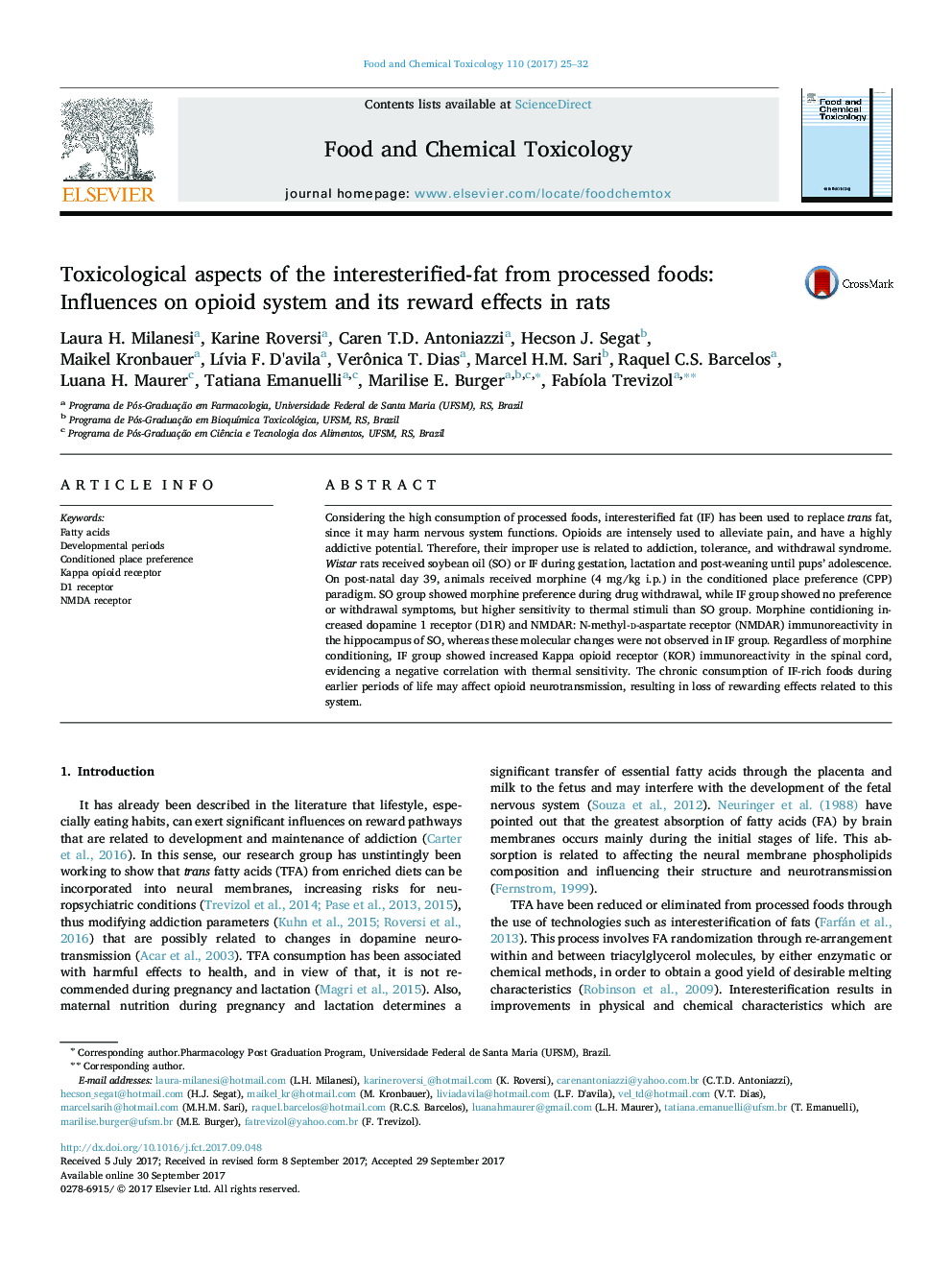| کد مقاله | کد نشریه | سال انتشار | مقاله انگلیسی | نسخه تمام متن |
|---|---|---|---|---|
| 5559927 | 1561737 | 2017 | 8 صفحه PDF | دانلود رایگان |
- Interesterified fat (IF) has been used to replace trans fat.
- IF consumption in early life periods changes both dopaminergic and glutamatergic neurotransmission morphine-induced.
- IF-supplemented rats showed no preference or withdrawal symptoms after morphine conditioning.
- Morphine conditioning did not change D1R immunoreactivity in IF group.
- IF-supplemented rats presented hyperalgesia.
Considering the high consumption of processed foods, interesterified fat (IF) has been used to replace trans fat, since it may harm nervous system functions. Opioids are intensely used to alleviate pain, and have a highly addictive potential. Therefore, their improper use is related to addiction, tolerance, and withdrawal syndrome. Wistar rats received soybean oil (SO) or IF during gestation, lactation and post-weaning until pups' adolescence. On post-natal day 39, animals received morphine (4Â mg/kg i.p.) in the conditioned place preference (CPP) paradigm. SO group showed morphine preference during drug withdrawal, while IF group showed no preference or withdrawal symptoms, but higher sensitivity to thermal stimuli than SO group. Morphine contidioning increased dopamine 1 receptor (D1R) and NMDAR: N-methyl-d-aspartate receptor (NMDAR) immunoreactivity in the hippocampus of SO, whereas these molecular changes were not observed in IF group. Regardless of morphine conditioning, IF group showed increased Kappa opioid receptor (KOR) immunoreactivity in the spinal cord, evidencing a negative correlation with thermal sensitivity. The chronic consumption of IF-rich foods during earlier periods of life may affect opioid neurotransmission, resulting in loss of rewarding effects related to this system.
Journal: Food and Chemical Toxicology - Volume 110, December 2017, Pages 25-32
